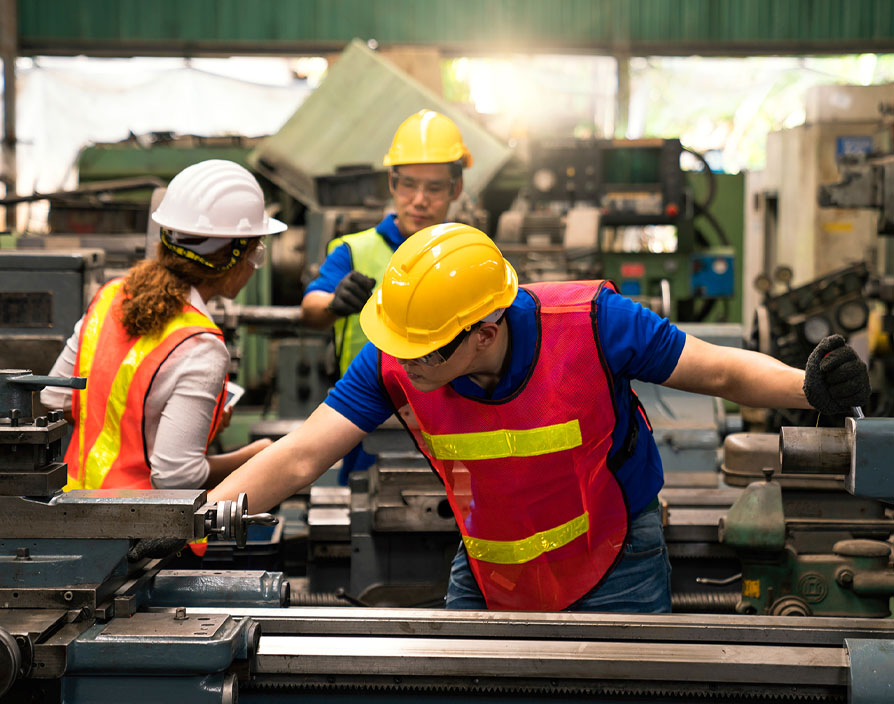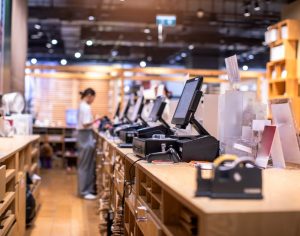Generations of men and women were defined by their roles – fitters, machinists, putters (the people who assembled scissors). It was like their identity was stolen when Thatcher shut the factories in the 80s in favour of the city and North Sea oil. Whole communities in places such as Sheffield and Birmingham cast adrift wondering how they were going to make a living in this brave new world. My mum comes originally from Falkirk in Scotland which was known the world over for its fine cast and wrought iron. Balustrades and railing, found as far afield as New Orleans and New Delhi, are the product of this small, hard-working town. There were over 80 foundries in its heyday, now there are none. The last one closing in the 80s when Royal Mail stopped making their cast iron post boxes.
Manufacturing was a quarter of our GDP in the 70s; now it’s less than 10% yet we have a strong nostalgia for time when we made things for a living. Yet we forget how tough it was. Take a look on YouTube showing workers in current day Pakistan employed in dirt floored sheds casting and machining huge lumps of steel with great skill, but terrible working conditions and, without doubt, terrible pay. Do we want to go back to that? Definitely not! I’m sure those grafters would prefer an airconditioned office to a sweltering foundry any day. Anyway, what’s left of our manufacturing is a far cry from this sweat and grime, with its automated lines and robotic assistance. Our factory worker is more likely sitting in front of a computer than turning the handle on a lathe. It seems few people are using their hands to make a living anymore.
Yet there is still an underlying desire to make something by hand, or to own something made by hand. Etsy, the online site for artisans, grew by 7% last year to revenues of $2.75billion – that’s an awful lot of people making and buying ‘stuff’.
People like Tim Little have revived the Northampton handmade shoe making industry that had almost disappeared. Daniel Harris from the London Cloth Company has gone around the mills of Wales and the North restoring mothballed weaving machines so the likes of Ralph Lauren can have original, handwoven English fabric in their clothes. The demand, albeit sometimes niche and often at a premium price, is there.
You could argue that we already have enough things in our lives so why would we want to manufacture more, and you would be right. From the TV’s Repair Shop to millions of online restoration videos for everything from wooden yachts to tin toys, you can see there is a growing community who are keeping the stuff we already have in fine fettle. As mainstream manufacturers move towards net-zero emissions they are also rethinking their linear supply chains on a grand scale to become circular, bringing back their products for refurbishment, upgrading and redeployment.
This ‘need to make’ is fundamental to our very existence. We employ our brains to memorise, recall, calculate, analyse and create, but we also use it to control our bodies. It is well established that physical activity from yoga to football keeps our minds and bodies healthy. In addition, our species became successful, not only because of this physical ability, but also because of the relationship between our brain, hands and eyes. The Ashmolean Museum in Oxford has the most amazing, perfectly symmetrical axe head knapped by one of our ancestors 300,000 years ago. It’s emotional to see- it connects you back over time to a soul not so dissimilar to you or I, with the same need to prosper, the desire to do something right and be proud of, and to make their mark.
As we move into an ever more virtual, automated world, just as we need to reconnect with our natural world, we need to reconnect with our ability to make, to find balance, meaning and maintain our mental health. Whether that’s a perfectly poured caffè latte or a Saville Row suit, we all have innate abilities and not exercising them will eat away at our soul – we just need to learn the skills.
Even for those that insist they have two left thumbs we also have important relationships with made objects. Perhaps not as rare and precious as a neolithic axe head, but the Repair Shop clearly demonstrates the emotional connection we have with things that have been used and valued by people. I recently restored my wife’s grandfather’s Victorian carpenter’s chisel and, when I use it, it makes me feel part of something bigger; of family, tradition, heritage and of future generations for whom I’m looking after it.
In the UK, we need fast-paced, innovative manufacturing, just as we need the service industry, finance, agriculture and all the other facets of a modern economy, but we also need the steady, dexterous artisans – long live the makers!
Share via:









































